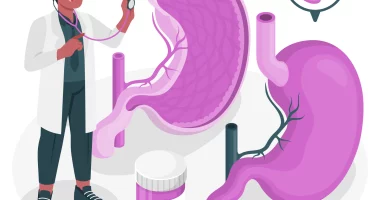Asperger’s syndrome is a condition on the autism spectrum, which means it shares many characteristics with other forms of autism. People with Asperger’s often need routines and have verbal communication and strong intellectual skills.
In the past, Asperger’s syndrome was diagnosed separately, but in 2013, the American Psychiatric Association stated that Asperger’s is a part of autism spectrum disorder (ASD). This specific classification is known as “ASD without mental strength or language impairment.”
People with autism, including those with Asperger’s, frequently find it challenging to read social cues. This can make social interactions and communication difficult, which may lead to feelings of depression and anxiety.
The exact number of people with Asperger’s is not known. Some approximates suggest about 1 in 250 people might have it, but this figure might not be correct due to limited research and the reclassification of Asperger’s under the broader group of autism.
Overall, about 1 in every 44 people are diagnosed with autism. Several reasons contribute to boys being diagnosed with autism more than four times as often as girls.
Symptoms
The signs of Asperger’s syndrome (AS) can differ widely among individuals. Early symptoms of autism spectrum disorder (ASD) can show up early in life, and most cases are recognized in children between the ages of 3 and 10. However, delays in developmental evaluation can sometimes lead to a later identification.
One of the signs of AS involves badly coordinated motor skills, which can result in awkwardness or clumsiness. A key difference between Asperger’s syndrome and other types of autism is that individuals with AS typically have strong intellectual and verbal skills.
Other common symptoms of AS include a child’s enthusiastic interest in a topic or object, often to the exclusion of other interests. These children might also engage in rituals or routines and exhibit peculiarities in language and speech. Their behavior can be socially dissimilar, sometimes seen as inappropriate by others, and they may have difficulty communicating successfully with their peers. Nonverbal communication can also be challenging, and issues with clumsiness and miscoordination are common.
Despite these challenges, many children and adults with AS can learn to compensate for their difficulties and build on their strengths. Potential strengths often include an exceptional ability to recognize patterns, a strong focus and attention to detail, and remarkable persistence in their interests and activities. These strengths can help individuals with AS navigate their unique challenges and succeed in various aspects of life.
Therapies and Support
When someone is diagnosed with Asperger’s syndrome (AS), various therapies and social supports can help them manage their unique way of thinking, understanding the world, and interacting with others. Although there is no cure for AS, these therapies can significantly improve daily life.
Education and Academic Skills
Children diagnosed with AS often profit from educational support. This might include help with organizing notes, managing homework, and addressing specific learning requirements. Some children might need more advanced coursework to match their intellectual abilities.
Social Skills Training
Individuals with AS can learn strategies to improve their interactions with others, such as how to study and respond to social cues.
Communication Skills Training
Specialized speech therapy and language therapy can teach people how to begin and maintain conversations. This training also helps them learn how to use their voice effectively in different situations, understand verbal and nonverbal issues, and respond appropriately.
Cognitive Behavioral Therapy (CBT)
CBT helps individuals manage their emotions and reduce obsessive interests and repetitive behaviors.
Behavioral Support
Behavioral modifications, such as Applied Behavior Analysis (ABA), support positive behavior and reduce ineffective behaviors.
Occupational or Physical Therapy
These therapies assist those with sensory issues or poor motor coordination, helping them improve their physical abilities.
Medication
While there are no specific medications for AS, some people may take medication to treat related symptoms like anxiety.
Studies in 2015 reviewed alternative therapies for autism spectrum disorder (ASD) and found anecdotal evidence suggesting that sensory integration therapy, music therapy, massage, and acupuncture might help. However, the researchers concluded that there is no strong evidence to fully support the effectiveness of these alternative treatments for ASD.
Role of Supporting Caregivers
Caregivers and parents of individuals with Asperger’s syndrome (AS) can greatly benefit from learning about the condition. Understanding AS better equips them to support their loved ones effectively and helps prevent feelings of isolation.
Strategies for Caregivers
Learning specific strategies can help caregivers support someone with AS. For example, individuals with AS often cope better with changes if they are informed in advance and if plans are made to manage the change. Family members and support networks can play a crucial role in preparing the person for any upcoming changes, which helps reduce anxiety and stress.
Communicating with Schools
If parents suspect their child shows symptoms of Asperger Syndrome, it is essential to interact with the child’s school. Schools can provide learning support through a Gifted Individualized Education Plan (GIEP) or an Individualized Education Plan (IEP) tailored to the child’s needs. Not every kid qualifies for a GIEP or IEP, but if the educational team deems it necessary, these plans offer additional assistance protected by law.
Lifelong Support
While the core characteristics of AS are in the long term, with the right support, individuals with AS can achieve their full potential and improve their quality of life. Supportive caregivers who understand AS can help maximize their loved one’s achievements and overall well-being.
Causes of Asperger’s Syndrome
The exact causes of Asperger’s syndrome (AS) are not known, but it is believed to result from a mix of genetic factors and differences in brain development that occur before birth.
Some scientists think that environmental factors might also play a role in the growth of AS. However, despite various theories and speculations, no environmental factor has been proven to directly or indirectly cause AS. This means that while genetics and prenatal brain development are strongly linked to AS, the impact of environmental factors remains unclear and unsupported by solid evidence.
Complications of Asperger’s Syndrome
Asperger’s syndrome (AS) can lead to several complications that affect daily life. These complications may stem from the signs of AS or be related to other functional difficulties. Some complications include:
Sensory Difficulties
People with AS might have unusual sensory sensitivities. Their senses can be either heightened or dulled, affecting how they perceive things like bright lights, noise, food textures, strong smells, and different materials. This can make everyday experiences overwhelming or uncomfortable.
Social Issues
Individuals with AS often struggle with understanding emotions, body language, and social cues. These challenges can make it hard for them to relate to others, impacting their relationships at work, school, and home. This can lead to feelings of isolation and difficulties in social interactions.
Development of Other Conditions
People with AS are more likely to develop other conditions, such as anxiety or depression, often due to social separation or other challenges they face. Additionally, they may be more prone to medical conditions like immune system issues, gastrointestinal problems, sleep disorders, obesity, seizures, high cholesterol (dyslipidemia), high blood pressure (hypertension), and diabetes.
These complications highlight the importance of comprehensive support and management for individuals with AS to help them navigate these challenges and improve their quality of life.
Diagnosis of Asperger’s Syndrome
Diagnosing Asperger’s syndrome (AS) is crucial for getting the right treatment. One of the main challenges in diagnosing AS is that its symptoms can be mistaken for other mental health conditions, such as attention deficit hyperactivity disorder (ADHD), obsessive-compulsive disorder (OCD), oppositional defiant disorder (ODD) or borderline personality disorder (BPD).
Another challenge is the gender disparity in diagnoses. Females with AS often receive a misdiagnosis due to differences in how the condition manifests in their behavior compared to males. Additionally, some studies suggest that doctors might be overdiagnosing autism spectrum disorder (ASD), but more research is needed to confirm this.
If a caregiver notices or parent delays in a child’s social skills, they should take the child to a pediatrician. The main doctor may then suggest a specialist, like a developmental psychologist or pediatrician, who can formally determine the condition.
There is no particular test for Asperger’s syndrome. Instead, trained professionals use a combination of questionnaires and interviews to make an informed diagnosis. Some commonly used tools include the Gilliam Autism Rating Scale (GARS-3), the Autism Spectrum Rating Scales (ASRS), the Autism Diagnostic Observation Schedule (ADOS-2), and the Childhood Autism Rating Scale (CARS-2).
Physical tests, like hearing tests, blood tests, or X-rays, may be used to rule out other conditions and ensure that physical disorders are not leading to the symptoms.
Early determination of AS can be challenging because of a wide range of signs, and sometimes an accurate diagnosis or appropriate medication does not happen until adulthood.
Summary
Asperger’s syndrome (AS) is a condition on the autism spectrum, characterized by strong verbal and intellectual skills but challenges in social interactions and sensory sensitivities. Diagnosis involves specialized assessments, as symptoms can resemble other conditions like OCD or ADHD, and can be misdiagnosed, especially in females.
Effective therapies include education support, social skills training, and cognitive-behavioral therapy, while medications address related symptoms like anxiety. Complications can include sensory difficulties, social issues, and co-occurring conditions. Support from caregivers and early diagnosis are essential for improving the quality of life for individuals with AS.








